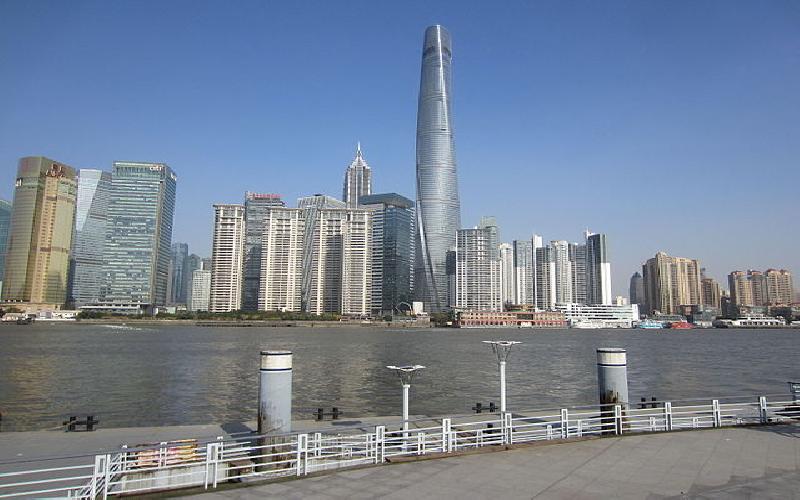Chinese Economic Growth : A Result of a Unique Hybrid System
China has vigorously pursued a political system dictated by communism, as well as continued with its own model of communist-socialist economy that restricts property rights and centralises wealth in the hands of the government. Yet, since 1978, it has also increasingly adopted, the same capitalist trade and foreign exchange policies that brought success and prosperity to most of the Western developed world. Not only that, it has taken the practice of this capitalism to a level, by curbing labor rights, pro-actively inviting Western corporate to its shores, and using its
authoritarian regime in a manner, that could put the most articulate advocates of capitalism to shame.It makes a very strange and unique hybrid system that began with trading, later spread to broader economic policy, has already begun to encroach on its culture and now gradually looms large over the fate of dictatorial communist regime.
The results of this hybrid system have been incredible, to say the least. A burgeoning trade surplus, a foreign exchange reserve that was difficult to imagine even a few years back, a consistent economic growth rate of 10% and above, and all this in the face of a non-democratic, strongly communist regime that rules with the ruthlessness of dictators, and with the inflexibility of the so called 'proletariat', in its pursuance of all round dominance over the globe.
The million dollar question that everyone seems to be asking is - "how long will the party last?"
The Stability of Growth & Areas of Concern
When the foreign exchange reserves of China started swelling, the pessimists began asking questions. The growth of economy was often referred to as a 'bubble' which was ready to burst and blow up, just as it happened in the case of Japan in early nineties, and in the case of several Asian economies in 1997. In spite of their apprehensions, the Chinese juggernaut continues to roll on, much to the disappointment of all the doomsday predictors. However, before we give a certificate of longevity and good health to this great phenomenon that is overtaking the world in its stride, we need to look at some of the grey areas that will need to be kept under surveillance in the coming years.
There are some factors that point towards danger.
(I) Dependence on External Trade & U.S. Dollar
The first of them is the dependence of china's external trade and foreign exchange reserves on US dollar. It is currently having most of its reserves denominated in US dollars, and a lot of it is invested in US treasury bills. Now the problem arises because of the asset inflation these investments create in US, thereby sustaining the American consumerism that is associated with a 'feel-good' factor arising from rise in the value of their wealth. Once this feel-good factor goes away, US dollar is bound to fall, and that will lead to erosion of hard earned Chinese wealth created from the continued sacrifice of its people.
(ii) Asset Bubble
Second major area of concern is the rising asset prices in China, which result from the inflow of foreign investment there. As of now, the increase in valuation of assets is sustaining the saving by ordinary people, as returns to investments are high. But this could be a bubble, which cannot be sustained for too long, and once it blows up, the results may take a long time to heal.
(Iii) Sustaining Household Saving
Third is the role of Chinese culture and values in maintaining its high household saving rate. The generation which was brought up on the Confucian values of austerity and simplicity, is fast converting into consumerist urbanites with individual centric Western values, which may not be willing to sustain
the saving rates of their predecessors. The economic growth in China is badly linked to Capital formation rate, which in turn depends upon saving. Any fall in saving may have repercussions on growth.(Iv) Aging Society
Fourth, the one child family has brought a lot of distortions in the society, which is now beginning to show signs of aging. Aging, is a dangerous phenomenon for export dominated economic growth, as rising demand for labor may lead to increasing cost of production, and it will be interesting to see if the price competitiveness of the Chinese products can be maintained in spite of this development.
(V) Increasing Complexities
Fifth and the last economic factor which poses a threat to its growth is the increasing complexity of its systems, balancing which will need a very tactful handling. Already, the burgeoning foreign reserves have become a headache for a country where the demand for foreign exchange by its own investors for overseas investments is not much. So far the public enterprises have done well to make strategic investments in energy and mineral sectors, but further continuation of this policy is full of dangers. Increasing liquidity and rising asset prices are now creating many new challenges, and window guidance of financial sector is now entering a phase where it may be difficult to balance financial propriety with strategic objectives of the economy. There are also dangers of inflation looming on the horizon, which can lead to difficult situations given the rising disparity between incomes of rural and urban people.
All these are signs of things getting complicated in a manner, which will require more and more tight rope walking by the policy makers in China. It does not mean that they will fail. It only means that the odds of their failing may continue to rise.
The Greatest Challenge: Political Stability against Rising Aspirations of People
The most important factor, that will, in the course of next decade or so, decide the success of Chinese fairy tale, is the sustenance of public support in the face of panic and crisis which are bound to happen occasionally, in the given complexities of its economy. Till their incomes continue to rise, the common folk will support everything, but if things go wrong even temporarily, it may not remain the same. Given the exposure to the world to which the Chinese masses have now been introduced, it would certainly not be easy, even for the most authoritarian government, to suppress them if they want their wishes to be taken into account.
As happens in a cocktail, capitalism can be mixed with communism, but once it is mixed with it, it is near impossible to separate it again!
I have a feeling that the Chinese leaders understand this very well. The economic success of China seems to have come with a rider, in the form of getting its ideological fate fixed. In the adoption of capitalism by communism, the point of no return may have already arrived! China may continue to remain a communist country in future - but increasingly, that may be only in name, if the Chinese economy is to survive and sustain its growth.










